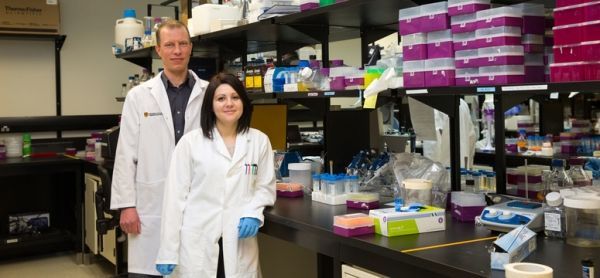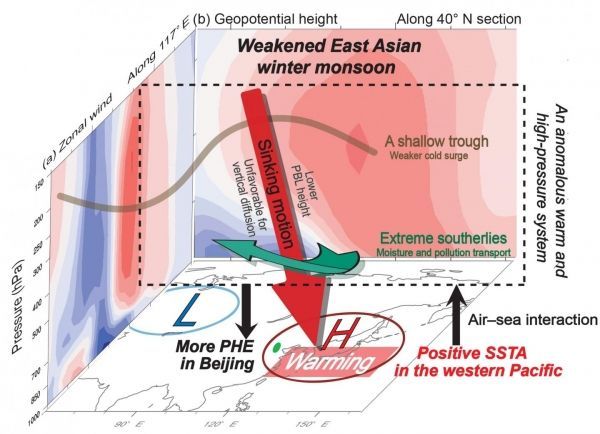In years when food is abundant for squirrels, males kill the young of rival males, according to new research from University of Alberta biologists.
articles
New diagnostic method makes testing for infections in people and animals quick and easy
Researchers in the University of Calgary Faculty of Veterinary Medicine (UCVM) have developed a fast, portable and inexpensive way to test humans and animals for different types of chronic and infectious diseases. This new “point of care” method tests for signals of infection, such as specific antibodies, in blood, milk or saliva samples.
NASA's GPM Observes Tropical Cyclone Eliakim Forming Near Madagascar
NASA got an inside look at the heavy rainfall within developing Tropical cyclone Eliakim. The new tropical cyclone that may affect Madagascar in a few days has been generating an impressive rate of rain.
6,000 years of sea level variations measured to the centimetre!
Geologists are today anticipating a rise in ocean levels of between 80 and 180 centimetres by 2100. But to fine-tune this prediction and upgrade the models underpinning it, we need to know about the recent past in greater detail – on a scale of a few thousand years instead of the millions of years that geologists usually work with. This tour de force was achieved by an international team of researchers that included the University of Geneva (UNIGE). The scientists succeeded in reconstructing the sea-level curve over the last 6,000 years in French Polynesia with unmatched accuracy: to within one centimetre. The research, which is based on analysing coral microatolls, is published in Nature Communications.
Large-scale Climatic Warming Could Increase Persistent Haze in Beijing
Over the past decades, Beijing, the capital city of China, has encountered increasingly frequent persistent haze events (PHEs). Severe PHEs not only lead to a sharp decrease in visibility, causing traffic hazards and disruptions, and, hence, affecting economic activities, but also induce serious health problems such as respiratory illnesses and heart disease. While the increased pollutant emissions serve as the most important reason, changes in regional atmospheric circulation associated with large-scale climate warming are found to play a role as well.
Decade-Long Study Helps 21 Million Chinese Farmers Cut Fertilizer Use
Millions of Chinese farmers have cut fertilizer use, reduced greenhouse gas emissions, and increased crop yields after adopting new region-specific management practices, according to a 10-year study published recently in the journal Nature.










